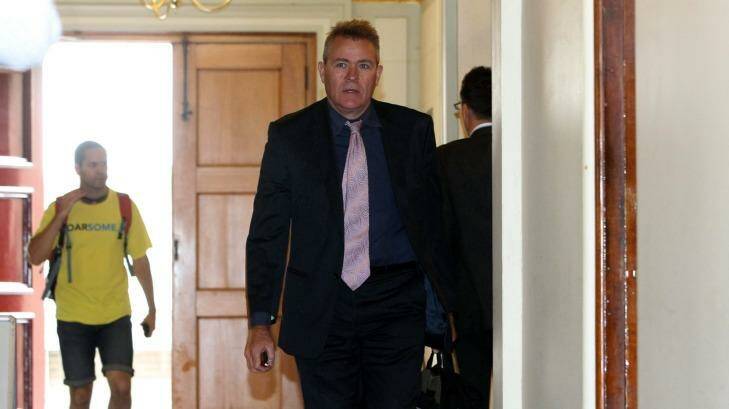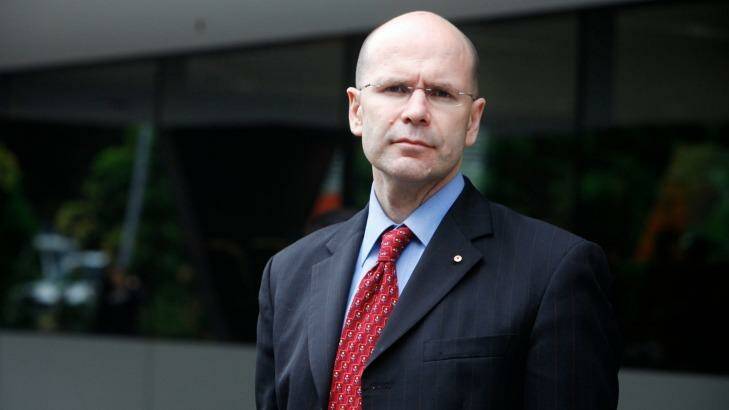






Spy agency ASIO will be given the power to monitor the entire Australian internet and journalists' ability to write about national security will be curtailed when new legislation – expected to pass in the Senate as early as Wednesday – becomes law, academics, media organisations, lawyers, the Greens party and rights groups fear.
Subscribe now for unlimited access.
$0/
(min cost $0)
or signup to continue reading
The new laws – the first of many national security reforms – began being debated in the Senate on Tuesday and had previously been sent to a committee for public consultation.
But the 13 recommendations made to government last week by the powerful Parliamentary Joint Committee on Intelligence and Security concerning the legislation – which it examined and held public hearings on – have not satisfied the Australian Lawyers Alliance, university academics, the Greens, the Media Entertainment and Arts Alliance and digital rights group Electronic Frontiers Australia.
They say the recommendations do not address grave concerns they hold about the bill giving ASIO the power to monitor the entire internet with just one warrant and restricting what journalists write.
The committee's recommendations to the National Security Legislation Amendment Bill (No.1) 2014 have been accepted by the government in full.
It is understood the associated government amendments, announced on Friday, were circulated to Labor earlier than to other parties and independent senators, who received them on Tuesday when they were tabled in parliament. One of those amendments, announced on Monday by Attorney-General George Brandis and new ASIO chief Duncan Lewis, explicitly rules out "torture" being conducted by intelligence officers.
Labor has indicated that if all amendments are adopted it is likely to pass the bill. This means the laws will pass even if there is crossbench opposition.
But Professor George Williams of UNSW said the laws and their amendments did not address serious concerns they could enable agencies to tap, access and disrupt target and third-party computers and networks across Australia after getting just one warrant.
Dr Williams previously warned the PJCIS that the laws were too broad and could allow ASIO to monitor the entire Australian internet as a "computer network", as defined in the new laws.
"The problem is [this specific new law regardless of amendments] applies to computer networks and the internet is a computer network – it's a network of networks," he said.
Jon Lawrence, of digital rights group Electronic Frontiers Australia, agreed.
"I think the drafting of this is so vague that it really could be extended," he said.
"A network can essentially be anything from three computers on a Wi-Fi modem to potentially an entire corporate network or an entire internet service provider network or at the extreme end the whole internet," he said.
Dr Williams suggested the warrant process should be restricted to only accessing parts of a computer network necessary to gather intelligence.
"I accept that [agencies] should be able to access [a university or another organisation's computer] network but it should be strictly limited to those parts of the network to gain the intelligence on a particular [target]," he said.
 
Dr Williams also said section 35P – which jails people who "recklessly" reveal information related to a "special intelligence operation" (SIO) – would have a "chilling effect" on journalists and whistleblowers attempting to disclose information.
The lawyer for whistleblower and former US National Security Agency contractor Edward Snowden, Jesselyn Radack, has previously labelled the legislation as "draconian" and "chilling" while NSA whistleblower Thomas Drake said they reminded him of his trial and would result in self-censorship by disclosers.
The legislation makes it an offence if a person "discloses information ... [that] relates to a special intelligence operation" and does not state any public interest exemptions, meaning it could apply to anyone including journalists.
Those who disclosed such information would face up to 10 years' jail.
A PJCIS recommendation adopted by the government does, however, allow the Inspector General of Intelligence and Security and lawyers to be informed of the information for media or whistleblowers seeking legal advice, but not anyone else.
 
Dr Williams was supported in his opposition to section 35P by a group of media organisations, including AAP, the ABC, APN, Fairfax Media, FreeTV, News Corp and others, who said in a joint submission to the PJCIS in August that 35P should "not be included in the legislation".
"[Its] insertion ... could potentially see journalists jailed for undertaking and discharging their legitimate role in a modern democratic society – reporting in the public interest," they said.
Shadow Attorney-General Mark Dreyfus initially appeared to oppose 35P, saying in August that the way it was drafted then meant it was "not necessary".
"It is an unprecedented overreach of government power which poses a real threat to the freedom of the press," Dreyfus said.
On Tuesday his spokeswoman said he was now satisfied with it given government amendments.
"These changes balance the need to protect the safety of ASIO employees engaged in SIOs, while ensuring that journalists are not in danger of being penalised for simply doing their jobs," his spokeswoman said.
Christopher Warren of the Media Entertainment and Arts Alliance, which represents journalists, said the amendments did not give him confidence journalists would not be put at risk.
"The recommendations do seem to take some steps forward in that they improve parliamentary and governmental oversight of ASIO but they do nothing to improve community or media oversight of these important issues," he said.
"[The new laws] will leave ASIO with substantial powers to intervene in the work of media and of journalists, to persecute and to prosecute whistleblowers and indeed journalists who are dealing with whistleblowers," he said.
He added it was the alliance's view that under the new legislation publishing stories like many of the Edward Snowden revelations, including the revelation about the tapping of government phones in Indonesia, "could well become a criminal offence" in the future rather than a public interest matter.
One of the amendments government made to 35P was that the Director of Public Prosecution must take into account the public interest, including the public interest in publication, before initiating a prosecution of a whistleblower or journalist for the disclosure of an SIO.
But Greg Barns of the Australian Lawyers Association said this clause was "bullshit".
"The Director of Public Prosecution in every case it prosecutes uses a public interest test," he said.
Mr Barns added that the DPP would be under "considerable pressure" by government to prosecute anyone who disclosed information.
He said the laws would have "not just a chilling effect but a freezing effect" on national security reporting.
Senator Ludlam of the Greens told Fairfax Media his party would be opposing the bill in the Senate and moving significant amendments.
Senator Lazarus, of the Palmer United Party, has also proposed minor amendments.
Senator Ludlam said the premise of the bill was flawed.
"The special intelligence operations framework ... is effectively unamendable, [as is] the idea that journalists or somebody sharing an item on Facebook could be jailed for ten years for basically disclosing information in the public interest," he said.
"Also [flawed is] the idea that ASIO's definition of a computer network ... could encompass the entire internet."
 
 

